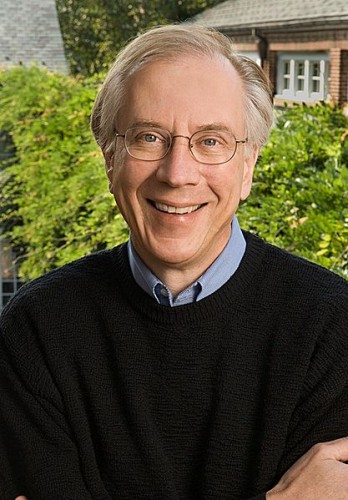 NOBEL LAUREATE TOM CECH SPOKE at RPI on Wednesday. (file photo)
NOBEL LAUREATE TOM CECH SPOKE at RPI on Wednesday. (file photo)Last Wednesday, Tom Cech, Nobel Laureate in Chemistry, gave the second of two inaugural lectures in a new series, “Life at the Interface of Science and Engineering” at Rensselaer’s Center for Biotechnology and Interdisciplinary Studies. The first lecture, also given by Cech, was at the University of Albany on Tuesday. This new lecture series was established thanks to the work of Dr. Marlene Belfort and Dr. Georges Belfort, professors at the University of Albany and Rensselaer Polytechnic Institute, respectively. The series concerns itself with topics requiring collaboration with the life sciences and engineering.
Cech’s lecture on Wednesday, “CRISPR Genome Engineering Gives New Insights about Telomerase and its Role in Cancer,” drew a large crowd of both Rensselaer students and faculty. There was not a single empty seat in the auditorium and all late-comers had to stand for the entire lecture.
First to the lectern was Rensselaer’s Dean of Engineering, Shekhar Garde, who explained the purpose and importance of the new lecture series then introduced Rensselaer’s President, Dr. Shirley Ann Jackson. Jackson summarized the credentials of Cech and his research into the catalytic properties of RNA that eventually earned him the 1989 Nobel Prize in Chemistry along with Sidney Altman. Jackson introduced Cech and he began the lecture.
The lecture mostly covered three important topics of research in contemporary biology research, telomeres, telomerase, and CRISPR (Clustered regularly interspaced short palindromic repeats). In brief, telomeres are caps of non-coding DNA found at the end of chromosomes that protect genes from damage. Telomerase is the enzyme that helps produce and repair telomeres. CRISPR is a strand of DNA taken from bacteria that can be used to make incredibly precise cuts in any kind of DNA thus making gene editing faster, cheaper, and more accurate.
Cech’s research concerns all three of these topics. Telomerase is vital for repairing telomeres which in turn repairs cells and slows the process of aging. Logically, it would seem, the more telomerase there is, the healthier cells would be. However, as Cech said, cancer cells produce their own telomerase which allows them to replicate indefinitely, resulting in malignant tumors. The upside, as Cech puts it, is that knowing this allows for more research into the relationships between the amount of telomerase and cancer malignancy. This is what Cech’s current research is on. He and his team of researchers use CRISPR to edit human cells to better observe how telomerase and telomeres function within the cell and the possible interactions that could cause cancer cells to form. This is done by using CRISPR to insert bio-luminescent genes into cells for more accurate bio-imaging and thus a better understanding of what takes place within a cell. Cech’s research concluded there is not only a positive correlation between amount of telomerase and cancer malignancy but also positive correlation between amount of telomerase and how quickly a patient will die if they already have cancer.
Cech concluded his lecture by stressing the importance of collaboration between the biological and physical sciences. Saying, that had those fields not collaborated the research he presented would not have been possible. The lecture then opened to questions from the audience of which there were many, especially from Rensselaer students. After questions concluded, Cech was thanked by a resounding round of applause.
